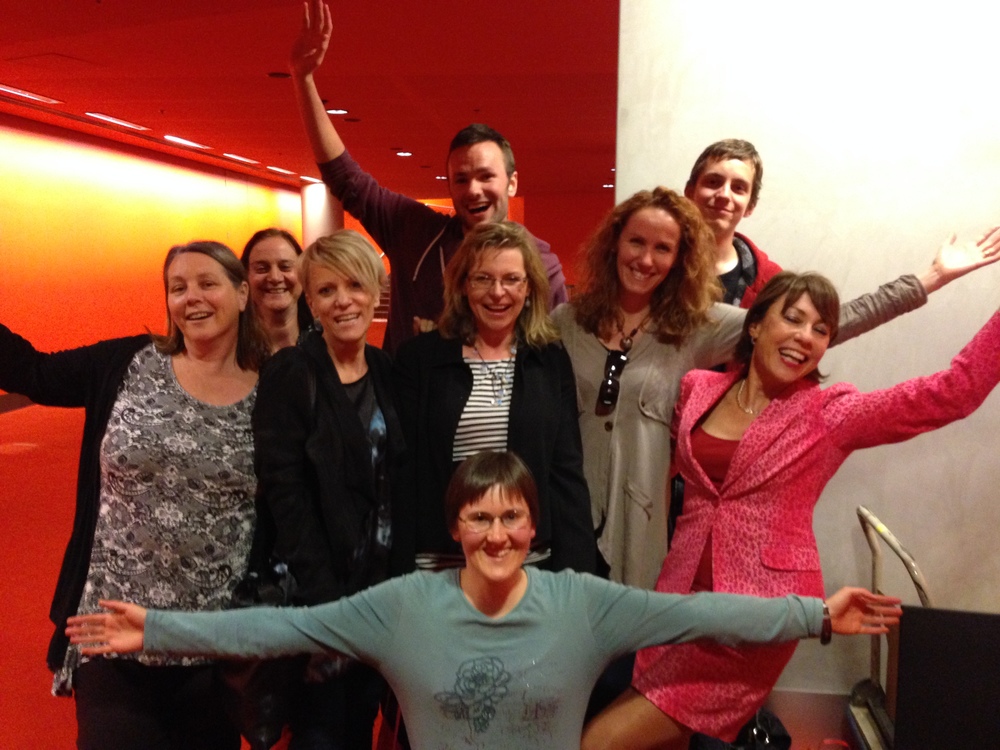Last night I presented my two hour 'Finding Fee Relief and Funding' talk to families for Aspergers Victoria, at the Nerve Centre in Blackburn, Victoria. It was a great night, with a very engaged and inquisitive audience, and as always, lots of communal sharing of tips, ideas and strategies.
Overall I covered 18 different ways to access funding and rebates for individuals and families with Aspergers and autism. As the Medicare Safety Net generated a lot of discussion I thought I'd go over it again here. While it's easy for families to register and obtain maximum rebates for their out-of-pocket medical and allied health expenses, this is one of those things that some families don't know about, which means they could be missing out on extra benefits from the Government.
How does it work?
The Medicare Safety Net provides financial assistance to individuals and families who are experiencing high costs for out-of-hospital medical services. If those services attract a Medicare rebate, they are counted towards your threshold. Before you reach the threshold, your Medicare benefit will be 85% of the scheduled fee, regardless of what the service provider actually charged you. After you reach the threshold, your Medicare benefit will be 80% of your out-of-pocket expenses. This is for all eligible future services, for the whole family, for the rest of the calendar year.
While individuals are automatically registered for Safety Net, couples and families MUST register with Medicare to have their combined expenses count towards the family safety net threshold. Even if you are all on the one Medicare card, you still need to register. You only need to do this once. Registering is simple - you just download, complete and post the form from the Medicare website, or call them on 132 011, or drop into a Medicare Service Centre (if you can find one!)
What are the thresholds?
For 2016 they are:
Original $447.40 - All Medicare cardholders will receive 100% of the scheduled fee for out-of-hospital services, after their gap amount (difference between Medicare benefit and scheduled fee) reaches this level.
Extended Concessional $647.90 - Concession card holders (eg Health Care Card) and families receiving Family Tax Benefit Part A will receive back 80% of their out-of-pocket costs on out-of-hospital services, once their out-of-pocket costs (difference between Medicare rebate and what you actually paid) reach this level.
Extended General $2030 - All Medicare cardholders, and registered families will receive back 80% of their out-of-pocket costs on out-of-hospital services, once their out-of-pocket costs (difference between Medicare rebate and what you actually paid) reach this level.
Why should I bother?
Because it can make quite a difference to your overall costs!
Take a trip to the psychologist, for example. Many Aspies experience times of anxiety or depression, and may consult with a psychologist for help with individualised strategies to overcome this. A common fee for a 50 minute session with a clinical psychologist is $200.
If you visit your GP first, to get a Mental Health Care Plan, you can get Medicare rebates for the cost of these services. That 50 minute session will now cost you much less - the Medicare rebate is 85% of the scheduled fee, which at $99.75 is less than half the actual rate. So your rebate of $84.80 leaves you $115.20 out-of-pocket.
As an individual, your rebate for this service will remain the same until you reach the original threshold of $447.40, at which point your rebate will increase to 100% of the scheduled fee. You will now be out-of-pocket $100.25 ($200-$99.75).
Now, if you (or your child) has a health care or other concession card, once you reach the Extended Concessional threshold of $647.90, your rebate will increase to 80% of your out-of-pocket cost. So now the $200 psychology session will cost you $40 ($200-$160).
If you don't register your family, you won't start receiving the higher 80% rebates until you each individually spend $2030 on out-of-pocket costs, or trigger the Extended Concessional threshold by having a concession card, or start receiving Family Tax Benefit Part A.
Wouldn't you rather save $60 per session? Just for making a phone call?
Another thing - if your child has their own Health Care Card, say because you've applied for the Carer's Allowance after receiving their Autism Spectrum diagnosis, their expenses will count towards their own Extended Concessional Threshold, AND your family safety net threshold at the same time.
What happens when my child turns 18?
Good question. The even better answer is nothing, at least while they are a full time student. Your child will stay registered with your family until they turn 25. At this point they will automatically drop off the family registration and start counting towards their own individual safety net. If your child does leave full time study, you must notify Medicare.
Even if they get their own Medicare card (which you can do once they turn 15), they will still be registered as part of your family until you notify Medicare they've stopped studying, or they turn 25, which ever comes first.
To help your teenager or young adult obtain their own Medicare card, click here.
Take Home Tips
- Register your family for Safety Net ASAP
- Lodge Medicare claims for all expenses ASAP. In person, online, or via the Medicare Express Plus App
- Ask your GP about programs such as the Mental Health Care Plan or Chronic Disease Management Plan, to lower your medical and allied health costs - they may not realise you could do with some help!
- See Medicare Safety Net for more details, or to download the family registration form.
This is just one small snippet of information I can explain to your group if you book me for a Funding talk. Or you can get many more tips like this in my book The Hidden Diffability: Discovering Aspergers.
Please sign up for my Hidden Diffability Newsletter to keep up to date.
Good luck on your Aspergers Journey!




